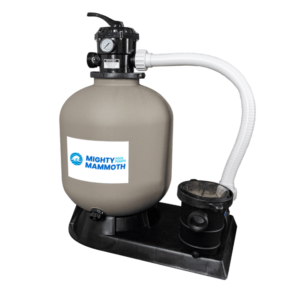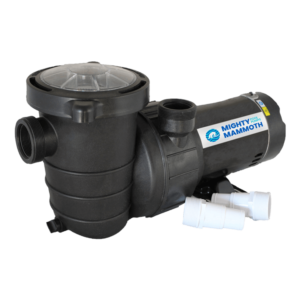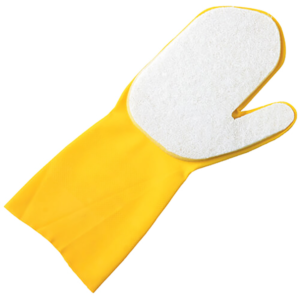Complete Above Ground Swimming Pool Maintenance Guide
UPDATED: September 22, 2021
The benefits of owning a pool are numerous. You can cool off in the summer, enjoy time together as a family, get exercise, add value to your home, have a beautiful looking backyard, and so much more. However, that enjoyment comes with a lot of responsibility. If you want clean, sanitary water, proper pool maintenance is essential. Maintaining your pool is an ongoing and consistent process. It’s a lot, but it’s totally worth it. Keep reading for all our pool maintenance tips and trips for your above ground pool.
Run your pool pump and filter daily.
Stagnant water is a breeding ground for bacteria and algae. With that in mind, water circulation is a must. Your pool pump and filter system are incredibly important in helping to keep your pool water clean and clear.
In a perfect world, you’d want to be using your pump 24 hours a day, 7 days a week. However, that isn’t feasible for everyone’s budget or schedule and can be hard on the equipment itself. So, we recommend running the pump for about 8-12 hours each day, to keep the water in motion.
Also, be sure to keep the baskets in the pump and skimmer clear of debris. You should check them every other day to ensure proper water flow.
Shop now:
Backwash your filter.
As dirt accumulates in your swimming pool filter, resistance to the flow increases. That’s when backwashing your filter comes in handy to keep the water circulating properly.
What is backwashing?
For those who are new to pool maintenance or need a refresher, backwashing is cleaning the filter by reversing the flow of water to remove any debris, build-up, and contaminants. The process depends on the type of filter you have, but the idea behind it is the same.
How often should you backwash your pool filter?
This depends on how frequently you’re swimming and how dirty the water gets. Generally, we recommend going through the backwashing process about once a month throughout the summer season for proper pool health. Check the pressure gauge daily. When the pressure gauge indicates a pressure rise of 8-10 pounds above the clean or “start up” pressure, it’s probably time to backwash your pool.
Clean your pool.
Routine pool cleaning is important as you work to keep the water sanitary and crystal clear for you and your family to enjoy. Even with your pump going, there are going to be areas in your above ground pool that experience little circulation — most commonly, the floors and wall. As noted, little circulation means increased algae growth, so those areas can be breeding grounds.
Pro tip: Never drain your vinyl liner pool. Most routine cleaning can be done without draining your pool. If a cleaning or maintenance task does require you to empty your pool, contact an expert before moving forward. Completely draining your pool can cause serious damage to the liner.
What you’ll need for cleaning:
For proper cleaning, net skimmers, pool brushes, pool vacuums, robotic pool cleaners, and scrubbers come in handy.
Shop now:
How often you should clean your pool?
Vacuuming and brushing your pool walls and floor should be part of your routine at least once a week. You may want to add more frequent cleanings if you’re more active in your pool or there are plants, trees, and shrubs dropping twigs, leaves, and other debris in your pool water. Robotic pool cleaners are awesome and can save you time, but you should still scrub your pool regularly.
Process for cleaning your pool:
Start by using a leaf skimmer to remove debris from the surface of the pool and the bottom to get as much cleaned out as you can.
Then you can brush the walls and floor of the pool toward the main drain, starting at the shallow end and use overlapping strokes. Always brush down toward the floor to allow the debris to be picked up with the pool vacuum.
Pro tip: Normally, a nylon brush is tough enough to eliminate the dirt, algae, and calcium deposits that cling to the wall. Avoid using a stainless steel brush, as it can damage your vinyl liner.
Cleaning can seem overwhelming, but it doesn’t have to be. We recommend you download a pool app for your smartphone that can help you keep track of your pool cleaning regimen. Also, consider hiring a professional to clean your pool at least once a year. Their specialized equipment and experience will help get your pool cleaner than you can on your own.
Check your water chemistry.
Pool chemistry is an essential part of maintaining your pool and impacts basically all aspects of your water and pool health. While it can seem intimidating, especially to new pool owners, it isn’t that hard to monitor.
How often should you check your water chemistry?
You should check your water chemistry daily. It’s also important to check your levels after cleanings and adding chemicals to your pool to make sure its safe for swimmers.
What should the levels be?
Here are the generally recommended water chemistry levels for your above ground pool:
- pH levels should between 7.2 and 7.6.
- Alkalinity should stay between 80 and 120 ppm. This will prevent fading in the pattern of the vinyl swimming pool liner.
- Calcium hardness should stay between 200 and 500 ppm to avoid corrosion.
- Chlorine levels should be between 1.5 and 2.5 ppm. If the level is below 1.5 ppm then bacteria and algae will grow, and if the chlorine is higher than 2.5 ppm, then the vinyl pool liner will most likely wrinkle.
- Dissolved solids should be below 5000 ppm.
- Cyanuric Acid should be between 40-80 ppm.
- Chloramine should be below 0.4 ppm.
Once you know these levels, you can start adding the necessary chemicals, like pH increaser, alkalinity increaser, calcium hardness, chlorine tablets, and more. Simply follow all directions for your water test strips and the chemicals and consult a pool professional if you need help.
You may need to shock and sanitize your pool. Generally, this is done once per week. Always shock in the evenings and follow instructions on the packaging.
Read now: Experts Tips for Testing Your Swimming Pool’s Water
Caring for your pool chemicals
As with any chemical, it’s best to take some precautions when storing and handling your pool chemicals:
- Store pool chemicals in a cool, dry, well-ventilated area. This will help reduce any chemical fumes or potential chemical reactions.
- When adding chemicals to the swimming pool to adjust levels, only add one at a time and let the first pool chemical circulate through the water before adding the next one.
- When adding liquid chemicals to water, hold the container close to the water surface so it won’t splash on your skin or clothes. Sprinkle granulated products close to the water surface so they won’t be blown into your face or away from the water.
- Avoid mixing or contaminating pool chemicals. You shouldn’t mix chemicals together unless the instructions direct you to do so.
- Follow instructions for disposing of waste and cleaning up spills to avoid injury or damage.
- Check all chemical expiration dates before using them.
Winter maintenance.
While the majority of your maintenance happens during the warmer months when the pool is open, pool owners still have responsibilities during the winter too. The better you care for your pool in the offseason, the better shape you’ll be in once the temperatures start to rise again.
Keep an eye on your winter pool cover.
You’ll want to keep an eye on your pool cover throughout the winter season. Once a week or so, check your cover for holes and make sure cables are tight and secure.
If leaves, sticks and other debris accumulate on your pool cover throughout the winter season — which they will — do your best to remove them without damaging the cover or impacting the water levels. An air pillow in the center of the pool should help prevent water and ice damage.
Shop now:
Check your water chemistry
Even when the pool is closed, you’ll still want to check the water levels and chemistry on a regular basis — generally once a month or so. Just like in the summer, unbalanced water can cause stains, build up, and algae growth. It can also prevent your winter chemicals from being as effective.
Add chemicals as needed throughout the winter and pay especially close attention in the weeks leading up to opening your pool. When the chemicals are added, use a pool brush to move around the water and distribute the chemical as best you can.
Pay attention to changes in water level
When your checking, also keep track of changes in your water level. Dramatic drops can be signs of leaking, which can cause serious damage to your pool if left for too long. Keep in mind that some pool covers can make it difficult to see changes in water level, so keep some notes to jog your memory in between inspections.
You’re all set!
While maintenance isn’t the most fun aspect of being a pool owner, it’s definitely important. A solid maintenance routine will help make sure your above ground pool, liner, equipment, and accessories last for years to come. Follow the above tips and you’ll be well on your way to a well-maintained swimming pool.
Keep in mind, the most important swimming pool maintenance tip we can give you is to maintain consistency. Regularly checking your water chemistry, cleaning your pool, and keeping an eye on circulation means you’re more likely to notice issues before they turn into huge problems or cause injury for you and your family.
Need more? Contact us!







Thanks for sharing some great tips on how to clean complete above ground swimming pool and maintenance. Really appreciate the info.
My pool has a lot of debris in it already, but it’s quite impossible to clean it up due to my busy schedule. Therefore, I’m thinking of hiring a pool maintenance service instead. Although, I never knew that backwashing is necessary for cleaning the filter. Anyways, I’d also keep in mind to have my pool regularly cleaned, so its water will be sanitized.
Thank you for your tips on how to handle pool chemicals and ways to make sure they don’t contaminate the pool. My uncle just got done with his luxury home renovations and this has now given him the opportunity to pay attention to the large swimming pool the house came with. With how big the pool is and how many chemicals we’ll need to maintain it, I’ll make sure I get my uncle to read your article and call for a swimming pool maintenance service to run us through the pool care process.